Refinancing your mortgage can be a smart financial decision that could save you thousands of dollars in the long run. But before jumping into a refinance, it is important to understand the various costs involved. One of the most significant expenses associated with refinancing is the closing costs.
Closing costs are the fees and charges that are required to complete the refinance transaction. These costs typically include a range of expenses such as appraisal fees, title fees, origination fees, and other refinancing fees. In this blog post, we will take a closer look at what these costs are and how they can impact your refinancing decision.
Appraisal Fees
One of the essential costs of a refinance is the appraisal fee. An appraisal is an evaluation of your property’s value, which is conducted by a licensed appraiser. Lenders require an appraisal to ensure that the property is worth enough to cover the mortgage balance. The cost of an appraisal can vary depending on the location and the type of property but generally ranges from a few hundred to a thousand dollars.
Title Fees
Another significant cost associated with refinancing is title fees. These fees cover the costs of conducting a title search, which is a review of public records to ensure that there are no liens or other legal issues with the property. The title company will also provide title insurance to protect the lender and the borrower in case any title issues arise. The cost of title fees can range from a few hundred to a few thousand dollars, depending on the location and the complexity of the title search.
Origination Fees
An origination fee is a fee charged by the lender for processing the refinance loan. This fee typically covers the lender’s costs for underwriting the loan, processing the application, and providing the borrower with a loan estimate. Origination fees can vary widely depending on the lender and the type of loan but can range from 0.5% to 1% of the loan amount.
Other Refinancing Fees
In addition to the above costs, there may be other fees associated with refinancing. For example, you may need to pay for a credit report, a flood certification, or a recording fee to record the new mortgage with the county recorder’s office. These fees can add up quickly and may impact your overall closing costs.
Managing Closing Costs
While closing costs are a necessary part of refinancing, there are ways to manage these costs effectively. One option is to roll the closing costs into the loan balance. This can increase your monthly payment, but it can also help you avoid paying upfront costs out of pocket. Another option is to negotiate with the lender to lower some of the fees. Finally, you can also shop around for different lenders to find the best closing cost estimates and compare the overall cost of each loan.
How Much are Refinance Closing Costs?
Refinance closing costs can vary depending on several factors, such as your loan amount, credit score, and the state you live in. On average, refinance closing costs can range from 2% to 6% of your loan amount. For example, if you are refinancing a $300,000 loan, your closing costs could be anywhere from $6,000 to $18,000.
Tips to Minimize Refinance Closing Costs While refinancing your mortgage can help you save money, it’s essential to keep your closing costs as low as possible. Here are some tips to help you minimize your refinance closing costs:
- Shop Around: It’s always a good idea to shop around for the best refinance rates and closing costs. Don’t be afraid to negotiate with your lender to see if they can lower their fees.
- Roll Closing Costs into the Loan: Some lenders offer the option to roll your closing costs into your new loan amount. While this can increase your monthly payments, it can help you avoid paying upfront costs.
- Look for Refinance Deals: Some lenders offer special refinancing deals that can help you save on closing costs. For example, they may offer to waive certain fees or provide you with a discount on your interest rate.
- Use a Refinance Calculator: Use a refinance calculator to compare the costs of refinancing with the potential savings. This can help you determine if refinancing is worth it in the long
Appraisal Fees
Lenders require a new appraisal of your home’s value to determine how much equity you have in your home. Appraisal fees typically range from $300 to $500.
Credit Report Fees
Lenders also require a credit report to determine your creditworthiness. Credit report fees can range from $25 to $50.
Application Fees
Some lenders charge an application fee to cover the cost of processing your refinance application. Application fees can range from $100 to $500.
Prepaid Interest
You may have to pay interest on your new loan from the day it funds to the end of the month. Prepaid interest can range from a few hundred to a few thousand dollars, depending on your loan amount and interest rate.
Escrow Fees
If your lender requires you to set up an escrow account to pay property taxes and insurance, you may have to pay an escrow fee. Escrow fees can range from $150 to $300.
Recording Fees
Your lender may charge you a fee to record your new mortgage with your county recorder’s office. Recording fees can range from $50 to $250.
Points
Points are an optional fee that you can pay to lower your interest rate. One point equals 1% of your loan amount. Points can range from 0 to 3 points, or more, depending on your lender and loan program.
Discount points
Discount points are upfront fees you pay to lower your interest rate. One discount point is equal to 1% of your loan amount. For example, if your mortgage loan is $200,000, one point is $2,000. Paying for discount points can be a good strategy if you plan to keep your home for a long time, as it can save you money in the long run. However, if you plan to sell your home soon, paying for points may not be worth it.
No-closing-cost refinance
A no-closing-cost refinance is a type of refinance where you don’t pay any closing costs upfront. Instead, the closing costs are added to your loan balance or paid through a higher interest rate. This can be a good option if you don’t have the cash upfront to pay for the closing costs, but keep in mind that you’ll be paying more interest over the life of your loan.
Closing cost estimator
A closing cost estimator is a tool that can help you estimate the total closing costs for your refinance. It takes into account different types of fees such as appraisal fees, title fees, and origination fees. By using a closing cost estimator, you can get a better understanding of the total cost of your refinance and plan accordingly.
Average closing costs
The average closing costs for a refinance typically range from 2% to 5% of the loan amount. This can vary depending on your location, lender, and the type of loan you’re getting. It’s important to get a clear breakdown of the closing costs from your lender so you know exactly what you’re paying for.
State-specific closing costs
Closing costs can vary by state, so it’s important to research the specific costs in your state. For example, some states may require additional fees for taxes or recording fees.
Lender fees
Lender fees are fees charged by the lender for processing your refinance. These can include application fees, credit report fees, and loan origination fees. It’s important to shop around and compare lender fees to get the best deal on your refinance.
Third-party fees
These are fees charged by third-party companies involved in the refinance process, such as the appraisal company, title company, and credit reporting agencies.
APR (Annual Percentage Rate)
This is the total cost of the loan, including the interest rate and all fees, expressed as an annual percentage.
Loan estimate
This is a document provided by the lender that outlines the estimated closing costs, interest rate, and other loan terms.
Good Faith Estimate (GFE): This is an estimate of the closing costs provided by the lender to the borrower within three days of applying for a mortgage.
Closing Disclosure (CD)
This is a document provided by the lender at least three business days before the loan closing that outlines the final loan terms and closing costs.
It’s important to note that some lenders offer a no-closing-cost refinance option, which allows you to refinance without paying upfront closing costs. However, these costs are typically rolled into the loan balance or the interest rate may be slightly higher.
To get a better idea of the average closing costs in your state and for your loan type, you can use a closing cost estimator. This tool will give you an estimate of the fees you can expect to pay based on your loan amount and location.
In addition to the lender fees and third-party fees, there may be other costs to consider such as discount points, which are fees paid to the lender to lower the interest rate, prepaid interest, escrow fees, and recording fees.
When considering a refinance, it’s important to weigh the cost of refinancing against the potential savings. A cost-benefit analysis can help you determine if refinancing is worth it for you. This analysis should include a comparison of your current loan terms to the future loan terms, the break-even point, and net savings.
In conclusion, refinancing your mortgage can provide significant financial benefits, but it is essential to understand the costs associated with the process. Closing costs, including appraisal fees, title fees, origination fees, and other refinancing fees, can add up quickly and impact your refinancing decision. However, with careful planning and research, you can effectively manage these costs and achieve your refinancing goals. Knowing what is involved with Refinance Closing Costs could save you thousands.
(Ensure to check your middle credit score at Middle Credit Score® to avoid the guidelines lenders have regarding having a lower-than-average middle credit score. In today’s market, almost every lender will approve a consumer based on their middle credit score. To avoid lenders that impose higher interest rates, fees, and points; position yourself first at MiddleCreditScore.com with a strong middle credit score then allow the credit score experts to place you with their Lender affiliates so you win.)







